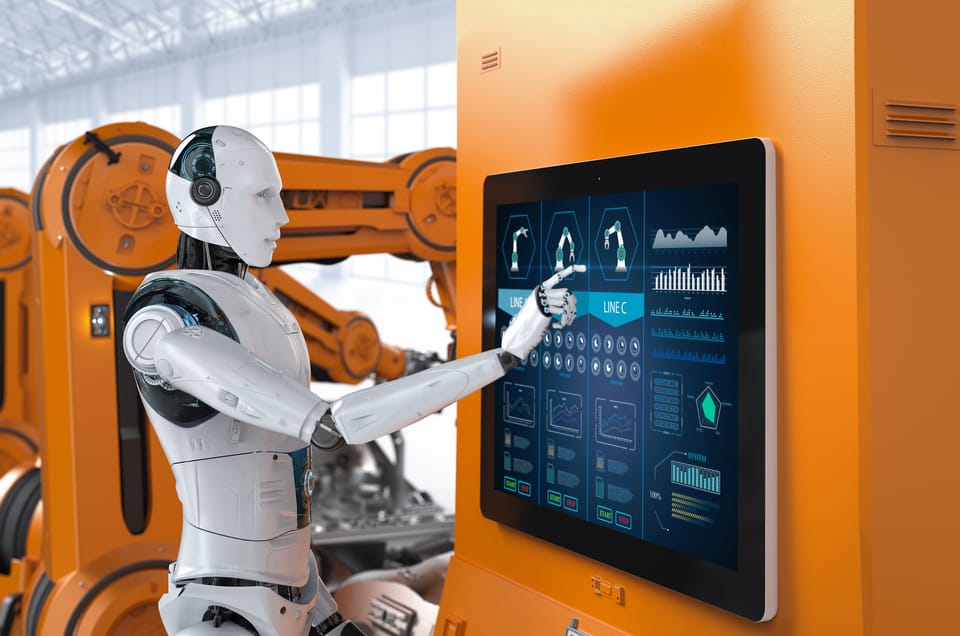🛠️ Skills and Workforce Futures #04
HolonIQ’s Skills newsletter explores global labor trends, reskilling initiatives, and workforce gaps across impact sectors. Dive into the latest insights on the Green Skills Map, climate, space, advanced tech, and health—key to the future of work and innovation.

HolonIQ is now tracking reskilling and upskilling initiatives that are critical in bridging workforce gaps. Impact industries are rapidly evolving, fueled by technological advancements, decarbonization, geopolitical dynamics, and socio-economic factors. These sectors require considerable workforce/professional development initiatives to enhance workers' capabilities, boost economic growth, and promote social well-being. Read on for this week’s insights.
🌎 Global Labor Market Trends
🌍 What Labor Market Power Teaches Us About the Allocation of Labor in Sub-Saharan Africa. Economic development involves shifting labor and capital from agriculture to more productive sectors like manufacturing and services. In many poor countries, especially in sub-Saharan Africa, this transition has been slow, with significant income disparities between rural agricultural areas and urban centers. Most workers remain self-employed, and frictions, such as barriers to mobility and job access, hinder optimal labor allocation. Beyond wages, jobs encompass location, environment, tasks, and identity, which can create labor market power and lead to inefficient labor distribution for production.
👷 Understanding America’s Labor Shortage. At the height of the pandemic, more than 120,000 businesses temporarily closed, and more than 30 million U.S. workers were unemployed. Since then, job openings have steadily increased while unemployment has slowly declined. Right now, the labor force participation rate is 62.7%, down from 63.3% in February 2020 and 67.2% in January 2001. There's not just one reason that workers are sitting out, but several factors have come together to cause the ongoing shortage. The factors detailed in the next section have all contributed to a labor shortage.
🌿 Green Skills Map
HolonIQ has launched the Green Skills Map, an open-source framework initiated to catalog, evaluate, and context components of the rapidly expanding field of green jobs. This comprehensive taxonomy will serve as a resource for understanding the full spectrum and complexity of green skills required across various sectors, thereby enabling a cohesive approach toward achieving net zero and decarbonizing the global economy. Green Skills Map spans 11 areas, 54 sub-areas, and 243 green skills clusters. A snippet of the map covering four areas has been included above. Explore the full map on greenskills.org.
🌎 Climate
🌳 Egypt Champions Green Jobs and Skills Development at COP29. Egypt's Minister Rania Al-Mashat, at COP29, spotlighted green job creation as a cornerstone of the global climate agenda. Emphasizing the critical need for skill development in renewable energy, sustainable agriculture, and circular economy sectors, Al-Mashat called for equitable climate finance to enable the Global South to bridge employment and sustainability gaps. Her address underscored the transformative potential of green skills in fostering economic resilience and environmental sustainability.
🏢 University of Tennessee Secures Funding for Green Jobs Initiative. The University of Tennessee, Knoxville, has been awarded a $750,000 grant for East Tennessee Works, a regional green jobs initiative focused on Knoxville’s inner-city and rural Southern Appalachian communities. Over the next three years, the program aims to place 5,000 East Tennesseans into green economy jobs by collaborating with community partners, industry, labor organizations, and educational institutions to provide training in advanced manufacturing and green construction.
🔋Newcastle Energy Hub to Create Thousands of High-Impact Green Jobs. A new energy hub in Newcastle, led by Britishvolt, is set to create over 2000 green jobs, revolutionizing the local economy. The project focuses on advanced battery production, supporting the UK’s clean energy goals while driving job growth in manufacturing, technology, and sustainability. By prioritizing workforce development and renewable innovation, this initiative underscores the transformative potential of green technologies to generate sustainable employment opportunities and bolster regional economic resilience.
🚀 Space
📡 The North East Space Communications Accelerator consortium is set to advance space research with $3.15M backing for NESCA, a consortium of universities, local authorities, and industry leaders. Plans include a $63.14M Space Skills and Technology Centre, innovation funds to support spin-outs, skills development programs, and expanded marketing to position the region as a leader in space innovation. NESCA, launching next year, aims to bridge research and industry, aligning university innovation with market needs to drive economic growth and bolster regional expertise.
📱 Advanced Technology
🖥️ Samsung R&D Institute India–Bangalore launched its Samsung Innovation Campus (SIC) at RNS Institute of Technology, Bengaluru. This will train 100+ students in AI and programming. This initiative combines theoretical learning and real-world projects, enhancing employability and innovation. SIC has trained 500+ students across six institutes over three years.
🧠 Technology Ireland Digital Skillnet, Microsoft, and the Analytics Institute launched Data Smart, a 12-week program designed to upskill non-IT workers in digital literacy. The initiative, combining online tutorials and interactive workshops, aims to train 10,000 people over three years. Participants develop skills in data collection, cleaning, transformation, visualization, storytelling, ethics, and governance. Graduates receive a Data Smart Foundation certificate from Microsoft and the Analytics Institute. Open to Republic of Ireland employees, the program prepares professionals for a digitally transformed workforce.
💡 Vodacom Group, in partnership with AWS, Microsoft, and Skillsoft, launched the Digital Skills Hub to upskill 1M young Africans by 2027. Targeting 18- to 35-year-olds across eight countries, the initiative offers self-paced training in digital skills, including cloud computing, AI, and STEM careers. It aims to bridge Africa's digital skills gap, addressing challenges like unemployment and inequality. Leveraging platforms like Talimy, e-Fahamu, and AWS Educate, Vodacom empowers youth for a more inclusive digital future.
🩺 Health
🦾 Singapore's National Healthcare Group (NHG), in collaboration with the Centre for Healthcare Innovation, has signed a memorandum of understanding with the Healthcare Academy. This partnership aims to revolutionize the nation's healthcare workforce by equipping healthcare professionals with essential skills in areas such as artificial intelligence, sustainable healthcare practices, workplace safety, and innovation.
👩⚕️ 40,000 workers from the University of California health system have launched a statewide strike, protesting ongoing staffing shortages and rising challenges with housing costs and the cost of living. While UC officials report efforts to increase staffing, the union contends these measures have been insufficient, driving the large turnout.
Like getting this newsletter? For unlimited access to over one million charts, request a demo.
Thank you for reading. Have a great week ahead!
Have some feedback or suggestions? Let us know at hello@holoniq.com




